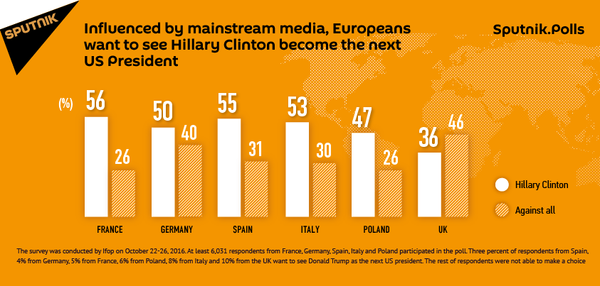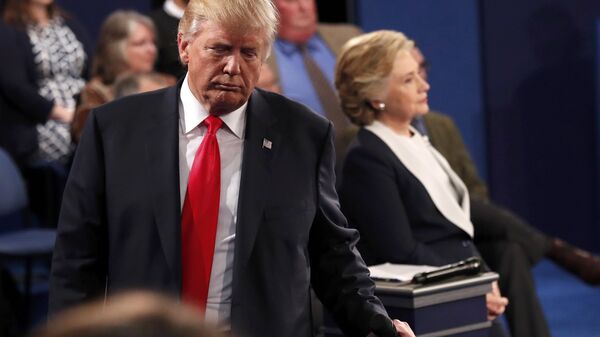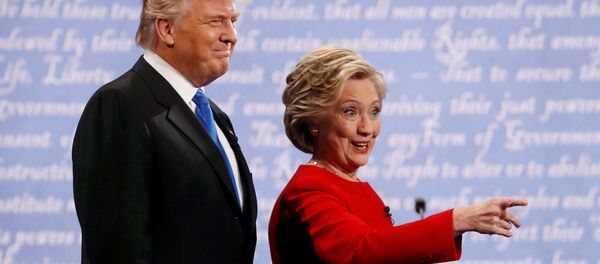Cashmore, a media analyst and visiting professor of sociology at Birmingham-based Aston University, noted that polls show that the United States is divided, with relatively similar number of voters supporting Democratic presidential hopeful Hillary Clinton and Republican nominee Donald Trump. However, the closer November 8 becomes, the more "fearful" and "cautious" the voters become.
"I think the Americans are probably prepared to throw the dice a little more. They, shall we say, are a bit more adventurous or cavalier in their political choices, but as the day nears I see that reality has bitten and they are beginning to think, 'Can we really elect the guy who has never held anything resembling a political office in his life? Can we really elect him to the White House?' Maybe the answer is yes, I don't know," he said.
Cashmore mentioned that he had made several visits to the US this year and talked to many people, with Americans largely appearing to be disappointed with both candidates.
"I really do get the feeling that most Americans think, 'You know we don't have much of a choice here. Neither one of these candidates is outstanding. They are not very likable. And frankly we are unsure where to cast our vote.' It tells you something about how divided America is at the moment," he observed.
The media analyst said that the "Clinton brand" has also played a major role in this presidential election cycle, with Hillary benefiting from how popular her husband still is. The former US secretary of state "is benefiting from this Clinton brand. I think it will carry her through ultimately."
Cashmore also commented on the recent poll conducted by the French opinion and marketing research company i-fop exclusively for Sputnik. The survey found that the majority of Europeans would like to see Hillary Clinton become the next US president.

"I think it's fear of the unknown. Their familiarity with Trump is that of a TV host and an entrepreneur, as a man who is very flamboyant in the way that he's earned his money and spent his money. He was a boxing promoter for a while, of course. He is very much a showman," he said. "I think Europeans are hesitant about electing showmen as the officeholder of the most important and certainly the most influential political position in the world."



